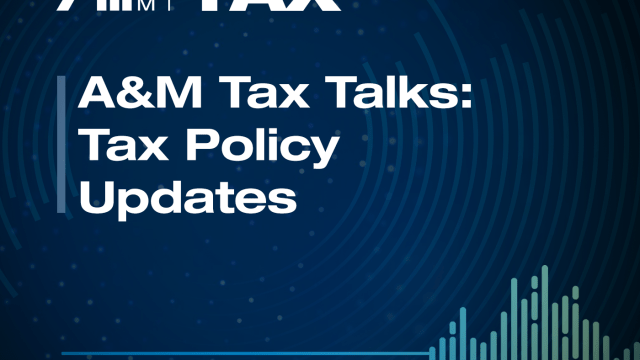PMK 50, PMK 53, and PMK 54 - Redefine Indonesian Crypto Asset Taxation in 2025
Introduction
On July 28, 2025, the Indonesian Minister of Finance enacted Regulation No. 50 of 2025 concerning Value Added Tax and Income Tax on Crypto Asset Trading Transactions (PMK 50).[1] PMK 50 went into force on August 1, 2025. This new regulation fundamentally revokes and replaces the previous framework established by Minister of Finance (MoF) Regulation No. 68/PMK.03/2022 (PMK 68) as lastly amended by MoF Regulation No. 81 of 2024 (PMK 81).[2] PMK 50 introduces a significant paradigm shift in how Indonesia taxes crypto assets.
The previous regulation, PMK 68, treated crypto assets as intangible commodities subject to Value Added Tax (VAT) on their delivery and a final Income Tax on the sale. The approach of PMK 50 aligns with the evolving view of crypto assets as part of the financial sector in which the transfer of crypto assets is no longer subject to VAT.
The new regulation aims to provide greater legal certainty, simplify administration, and align the tax framework with the transfer of regulatory and supervisory duties over digital financial assets to the Financial Services Authority (OJK).
Key Regulatory Shifts
- Redefinition of Crypto Assets: In PMK 68, crypto assets were classified and taxed as intangible commodities in digital form under the supervision of the Commodity Futures Trading Regulatory Agency (Bappebti). Under PMK 50, crypto assets are redefined as "digital financial assets," aligning with their oversight by the OJK. Article 1 of PMK 50 clarifies that a crypto asset is a digital representation of value that can be digitally stored or transferred, utilizing technology that enables cryptographic transactions on distributed ledger systems.
This reclassification signifies that crypto assets are now treated equivalently to securities such as stocks or bonds for regulatory and tax purposes, and consequently their transfer is no longer subject to VAT — reversing the earlier treatment under PMK 68, where the asset sale of crypto assets imposed VAT obligations.[3]
- Alignment With OJK Oversight: The regulation acknowledges the formal transfer of authority over digital financial assets, including crypto, to the OJK, signalling a move toward formal integration of crypto into the national financial system.[4]
- VAT on Crypto-Related Services: The VAT burden remains the same for the services that enable crypto transactions. This includes services provided by trading platforms (Electronic System Trading Providers or PPMSE) and verification services by crypto miners.
- Revised Income Tax Structure: While income from crypto transactions remains a taxable object, PMK 50 adjusts the rates and clarifies the nature of the tax for different participants. It distinguishes between final income tax for sellers (Article 22 income tax) and normal income tax for service providers like platforms and miners.
These regulatory changes have direct implications for investors, trading platforms, and miners. By redefining tax obligations and shifting VAT away from asset transfers, PMK 50 offers clearer, more predictable tax rules. It also introduces the necessary amendments to other relevant PMKs such as MoF Regulation No. 53 of 2025 (PMK 53) (amending MoF Regulation No. 11 of 2024[5]) and MoF Regulation No. 54 of 2025 (PMK 54) (amending MoF Regulation No. 81 of 2024[6]), to align with the provisions stipulated in PMK 50.
The following section compares the new tax rates with the prior framework to illustrate practical impact.
Tax Implications – VAT
Under PMK 50, VAT is no longer levied on the delivery of crypto asset but on the underlying services facilitating the crypto transactions.
| No. | Items | PMK 68 as amended by PMK 81 | PMK 50 |
|---|---|---|---|
1.
| Delivery of crypto assets
|
| No VAT levied (classified as security equivalent)[8]
|
2.
| PPMSE-provided services
| General VAT rate (11%) on:
| Effective VAT rate (i.e., 11%) on identical services[9]
|
3.
| Crypto-asset miners
| 10% × VAT rate on the crypto-asset verification service (i.e., effective VAT rate of 1.1% (10% x 11%)) | 20% × effective VAT rate on crypto-asset verification service (i.e., effective VAT rate of 2.2% (20% x 11/12 x 12%))[10] |
4. | Tax base
| Transaction value (fiat or crypto, converted to IDR)
| Same tax base method with PMK 68 as amended by PMK 81[11]
|
5.
| Collection and reporting
|
| Services: settlement before reporting date. Reporting by end of following month.[12]
|
Tax Implications – Income Tax Treatment
Income derived from crypto transactions is subject to Income Tax, with different mechanisms applied to each party.
No. | Items | PMK 68 | PMK 50 |
|---|---|---|---|
1.
|
Crypto-assets sellers
|
Article 22 final income tax:
Exemption applies if the seller is a treaty-country resident and Indonesia has no taxing rights, with a certificate of domicile submitted to the PPMSE.
Article 22 final income tax is collected, remitted, and reported by PPMSEs (domestic or foreign), except those providing only e-wallet services, connecting buyers and sellers, or not facilitating crypto asset trades, in which case, sellers self-remit and report. |
Article 22 final income tax:
Exemption applies if the seller is a treaty-country resident and Indonesia has no taxing rights, with a certificate of domicile submitted to the PPMSE.[14]
Article 22 final income tax is collected, remitted, and reported by PPMSEs (domestic or foreign), except those providing only e-wallet services, connecting buyers and sellers, or not facilitating crypto asset trades, in which case, sellers self-remit and report.[15]
|
2.
| PPMSE (platform providers)
| Income from own trading through another PPMSE is subject to the above Article 22 final income tax and related compliance.
| Income from own trading through another PPMSE: subject to the above final tax rates and compliance.
Other services are subject to general income tax rate and must be self-remitted and reported in the PPMSE’s income tax return.[16] |
3.
| Crypto-asset miners
| Income from own trading through PPMSE is subject to the above Article 22 final tax and related compliance.
A 0.1% Article 22 final income tax applies to income from block rewards, verification fees and other income not included in the first two categories. | Income from own trading through PPMSE is subject to the above Article 22 final tax and related compliance.[17]
Other income is subject to general income tax rate and must be reported in the miners’ annual tax return starting from FY 2026.[18] |
4.
| Tax base
| Transaction value (fiat or crypto, converted to IDR)
| Transaction value (fiat or crypto, converted to IDR)[19]
|
5.
| Assignment of foreign PPMSE as Article 22 income tax collector
| Assigned if also appointed as a VAT collector for the delivery of crypto-asset by sellers
| Foreign PPMSEs may be appointed as Article 22 income tax collectors if they exceed DGT-set thresholds or opt in. The DGT will issues a Tax ID number and decree, effective from the start of the following month.[20] |
Anticipated Impact
- Increased Certainty and Reduced Cost for Investors: One of the most notable advantages for investors is the removal of VAT on the actual transfer of crypto assets. This change is expected to reduce transaction costs and make it easier for investors to calculate their tax obligations. Introducing a final income tax rate also offers investors more predictability, as they know the exact tax rate that will apply to their earnings.
- Clear Obligations and a Benefit for Miners: For miners, the regulation clearly defines their status as service providers. They can now pay regular income tax on their overall profits with regard to the services provided. This structure now allows them to deduct business-related expenses, which was not permitted under the previous final tax regime.
Evolving Government Framework: The overhaul demonstrates the government's effort to create a more appropriate tax system for the digital economy. By applying VAT on the service providers instead of transfer of crypto assets, Indonesia aligns its approach with global trends that distinguish between financial assets and the services that support them.
Improved Tax Collection and Compliance: By requiring trading platforms (PPMSEs) to collect the final income tax on behalf of users, the government streamlines tax collection. This centralized system helps ensure that a wide range of traders pay the appropriate taxes, making compliance simpler and more consistent.
Conclusion
PMK 50 introduces major updates on how crypto and related services are taxed in Indonesia. The regulation recognises that crypto assets are financial in nature, similar to securities such as stocks and bonds, and states that their transfer should not be taxed. Rather, service providers facilitating crypto transactions will be taxed on the value of the services they provide. All stakeholders — including investors, trading platforms, and miners — must review their operations and compliance procedures to adapt to these new rules in force.
How A&M Can Help
A&M can provide tailored advice on compliance, assist with accurate tax calculations and reporting under the new rules, and help optimize business processes to efficiently meet both VAT and income tax obligations. We can provide expert support to adapt smoothly to the new regulations and minimize compliance risks as Indonesia’s crypto asset sector continues to evolve.
Sources
[1] Indonesia Minister of Finance, Regulation PMK 50/2025 Babak Baru Pemajakan Aset Kripto (Indonesian language), July 28, 2025, https://www.pajak.go.id/id/artikel/pmk-502025-babak-baru-pemajakan-aset-kripto#:~:text=Penyerahan%20Aset%20Kripto%20Tidak%20Lagi,media%20penyimpanan%20aset%20kripto.
[2] Article 28 of PMK 50
[3] Article 2 of PMK 50
[4] Article 1 of PMK 50
[5] PMK 11/2025 concerning Provisions on Other Values as the Basis for Tax Imposition and Specific Amounts of Value Added Tax
[6] PMK 84/2024 concerning Tax Provisions for the Implementation of the Core Tax Administration System
[7] Bappebti stands for Badan Pengawas Perdagangan Berjangka Komoditi, the Commodity Futures Trading Regulatory Agency of Indonesia.
[8] Article 2 of PMK 50
[9] Articles 3 and 5 of PMK 50
[10] Articles 7 and 8 of PMK 50
[11] Articles 5 and 8 of PMK 50
[12] Articles 6 and 9 of PMK 50
[13] Article 12 of PMK 50
[14] Article 14 of PMK 50
[15] Article 13 of PMK 50
[16] Article 23 of PMK 50
[17] Article 26 of PMK 50
[18] Article 25 of PMK 50
[19] Articles 5 and 8 of PMK 50
[20] Articles 17 and 18 of PMK 50




